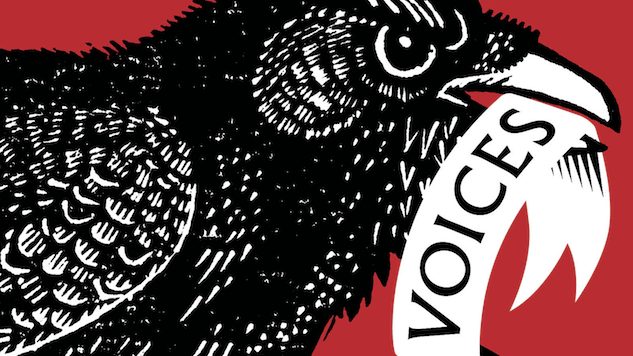Philip Pullman’s Daemon Voices Uncovers Exhaustion Hiding in the Fiction Forest

To invite a novelist to opine upon fiction is to beg for brutal exhaustion. Novelists, it seems, have spent a great deal of time analyzing their art, which is no less than storytelling. They will exsanguinate all but their most hagiographic fans as their stories turn to essays turn to ash.
It’s not surprising that Philip Pullman is guilty of the same crimes in Daemon Voices, his essay collection which assays the idea of stories and their telling. Pullman tends to belabor his battle axes—most notably in the academic speech Poco a Poco, whose very title promises torture. He so infuriatingly atomizes his particular point in said essay that I had to skip the next two laborious academic speeches.
 Why must we hear time and again of the novelist’s visit to the Valley of Dry Bones? Perhaps it stems from believing their work is under siege; perhaps it’s the long hours toiling sans appreciation or audience; perhaps it’s a desire to prove the crucial necessity of their work.
Why must we hear time and again of the novelist’s visit to the Valley of Dry Bones? Perhaps it stems from believing their work is under siege; perhaps it’s the long hours toiling sans appreciation or audience; perhaps it’s a desire to prove the crucial necessity of their work.
Whatever the case may be, it should be noted that for all its fatal wanderings, Daemon Voices does hit on one timely subject changing the shape of shared culture: the difference between the forest and the path. The path, Pullman states, is the story; it’s what gets the reader from one point to another. What the path cuts through, he says again and again, is the forest—a vast world gravid with possibility through which the storyteller must lay their path. The forest is the phase space, Pullman repeats, a phrase lifted from dynamics to represent a place wherein every possibility is possible at all once. It’s the author’s responsibility to pluck and arrange the points in a semi-linear format for the reader to follow.
At a time when the forest is denser than ever, Pullman argues that the path is more important than the forest. Setting off into the woods of world building is a modern affliction spread like hemorrhagic fever thanks to the internet, which constantly expunges and expands upon useless details. Wandering the forest—the fandom and lore—now comprises entire communities and channels of media.
A smaller treatise on this subject would have proven more illuminating than this essay collection, perhaps even shaping the face of fiction writing—which is to say, writing about fiction—as so many novelists seem to desire. But the point is left to die beneath the branches, as Pullman dallies with a handful of other concepts. In so doing, Daemon Voices ironically wanders into a deeper copse, succumbing to the restless curse of the fiction writer Pullman wants to avoid.
Daemon Voices does issue a grave warning before entering the woods. But when even the book’s editor writes in the foreword about the repetition of the ideas to come, either a shorter book or a more ruthless editor is needed.
B. David Zarley is a freelance journalist, essayist and book/art critic based in Chicago. A former book critic for The Myrtle Beach Sun News, he is a contributing reporter to A Beautiful Perspective and has been seen in The Atlantic, Hazlitt, Jezebel, Chicago, Sports Illustrated, VICE Sports, Creators, Sports on Earth and New American Paintings, among numerous other publications. You can find him on Twitter or at his website.







































